November 11 stands as one of history’s most eventful days, witnessing the rise and fall of empires, groundbreaking discoveries, and moments that shaped our modern world across centuries of human achievement.

Politics and Government Events on November 11
1918 – World War I Armistice Signed
Germany signed the armistice agreement with the Allies in a railroad car in the forest of Compiègne, officially ending World War I. This historic moment brought an end to four years of devastating global conflict.
The armistice took effect at the eleventh hour of the eleventh day of the eleventh month. Millions of soldiers and civilians worldwide celebrated the cessation of hostilities that had claimed unprecedented casualties.
1918 – Józef Piłsudski Assumes Power in Poland
Józef Piłsudski assumed supreme military power in Poland, marking the symbolic first day of Polish independence. This moment represented the culmination of centuries of struggle for Polish sovereignty.
The restoration of Polish independence after 123 years of partition energized the nation. Piłsudski’s leadership would prove crucial in establishing Poland’s place among European nations in the interwar period.
1918 – Emperor Charles I Relinquishes Power
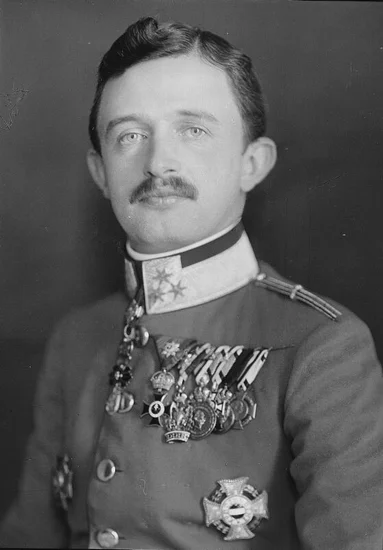
Emperor Charles I of Austria formally relinquished power, marking the end of the Habsburg monarchy. This decision dissolved one of Europe’s oldest and most powerful imperial dynasties.
The emperor’s abdication accelerated the fragmentation of the Austro-Hungarian Empire. Multiple successor states emerged from the empire’s collapse, fundamentally reshaping Central European politics.
1965 – Rhodesian Unilateral Declaration of Independence
Southern Rhodesia’s Prime Minister Ian Smith unilaterally declared the colony independent as the unrecognised state of Rhodesia. This controversial decision defied British authority and international law.
The declaration sparked decades of international sanctions and internal conflict. Smith’s government faced mounting pressure from liberation movements and the global community demanding majority rule.
1975 – Australian Constitutional Crisis
Australian Governor-General Sir John Kerr dismissed the government of Gough Whitlam, appointing Malcolm Fraser as caretaker Prime Minister. This unprecedented action triggered Australia’s most serious constitutional crisis.
The dismissal shocked the nation and sparked heated debates about democratic governance. Kerr announced a general election for early December to resolve the political deadlock.
1975 – Angola Achieves Independence
Angola gained independence from Portugal after centuries of colonial rule. The newly sovereign nation faced immediate challenges as competing liberation movements vied for control.
The independence celebration was overshadowed by emerging civil war. Multiple factions backed by different international powers would soon plunge the country into decades of conflict.
1999 – British House of Lords Reform
The House of Lords Act received Royal Assent, dramatically restricting membership based on hereditary peerage. This landmark legislation modernized Britain’s upper chamber of Parliament.
The reform reduced hereditary peers from over 750 to just 92 members. The change represented the most significant constitutional reform of the British Parliament in centuries.
2004 – Yasser Arafat’s Death Confirmed

The Palestine Liberation Organization confirmed Yasser Arafat’s death from unidentified causes. Mahmoud Abbas was elected chairman of the PLO within minutes of the announcement.
Arafat’s death marked the end of an era in Palestinian politics. His passing created both uncertainty and opportunity for new leadership in the Palestinian independence movement.
Military and Naval History on November 11
1940 – Battle of Taranto
The Royal Navy launched the first all-aircraft ship-to-ship naval attack in history at the Battle of Taranto. British torpedo bombers successfully struck the Italian fleet anchored in harbor.
This innovative attack demonstrated the devastating potential of naval aviation. The operation inspired similar tactics, including the Japanese attack on Pearl Harbor the following year.
1942 – Operation Anton Launched
German forces occupied France’s previously unoccupied zone libre in Operation Anton. This action eliminated the last vestiges of French sovereignty under the Vichy regime.
The occupation followed the Allied invasion of North Africa. Hitler’s decision to occupy all of France demonstrated his distrust of the Vichy government’s loyalty.
1961 – Italian Peacekeepers Massacred in Congo
Thirteen Italian Air Force servicemen deployed to the Congo as UN peacekeepers were massacred by a mob in Kindu. The attack highlighted the dangers facing international peacekeeping forces.
The incident shocked Italy and the international community. The massacre demonstrated the volatile nature of the Congo crisis and the risks of peacekeeping missions.
1967 – Vietnam War Prisoner Exchange
Three American prisoners of war were released by the Viet Cong in a propaganda ceremony in Phnom Penh, Cambodia. Antiwar activist Tom Hayden received the prisoners from their captors.
The carefully orchestrated exchange served Vietnamese propaganda purposes. The event highlighted the complex interplay between military conflict and political activism during the Vietnam War.
1968 – Operation Commando Hunt Begins
Operation Commando Hunt was initiated to interdict men and supplies on the Ho Chi Minh trail through Laos into South Vietnam. The operation represented a major escalation of the conflict.
American forces launched intensive bombing campaigns against supply routes. The operation would continue for years, consuming enormous resources with mixed results.
1972 – Long Binh Base Transfer
The United States Army turned over the massive Long Binh military base to South Vietnam as part of Vietnamization. This transfer represented a significant milestone in American withdrawal.
The base had served as a major logistics hub for American forces. Its handover symbolized the gradual reduction of direct American military involvement in Vietnam.
Science and Discovery Milestones on November 11
1930 – Einstein Refrigerator Patent
Patent number US1781541 was awarded to Albert Einstein and Leó Szilárd for their invention, the Einstein refrigerator. This absorption refrigerator required no electricity and had no moving parts.
The innovative design addressed the problem of toxic gas leaks from conventional refrigerators. Einstein’s involvement demonstrated his practical applications of scientific principles beyond theoretical physics.
2002 – Poincaré Conjecture Proof

Russian mathematician Grigori Perelman posted the first of three preprint texts proving the Poincaré conjecture. This remained the only solved Millennium Prize Problem in mathematics.
Perelman’s groundbreaking work revolutionized topology and geometric analysis. He later refused both the prize money from the Clay Mathematics Institute and the Fields Medal for his achievement.
2021 – NASA Launches Gemini 12
NASA launched Gemini 12, the final mission of the Gemini program. The mission successfully demonstrated spacewalk techniques and orbital rendezvous procedures.
Astronauts Buzz Aldrin and James Lovell completed the program’s objectives. The mission’s success paved the way for the Apollo program’s lunar landing missions.
Cultural and Arts Events on November 11
1992 – Church of England Votes for Female Priests

The General Synod of the Church of England voted to allow women to become priests. This historic decision fundamentally changed the Anglican Church’s approach to ordination.
The controversial vote divided the church along traditional and progressive lines. The decision influenced Anglican churches worldwide and sparked ongoing debates about gender roles in religious leadership.
1993 – Vietnam Women’s Memorial Dedicated
A sculpture honoring women who served in the Vietnam War was dedicated at the Vietnam Veterans Memorial in Washington, D.C. The memorial recognized the often-overlooked contributions of female veterans.
The dedication ceremony acknowledged the service of military nurses and other women. The memorial provided long-overdue recognition for women’s sacrifices during the conflict.
1919 – Centralia Massacre
The Industrial Workers of the World attacked an Armistice Day parade in Centralia, Washington, resulting in five deaths. The violence reflected deep tensions between labor organizers and established authorities.
The incident sparked a violent backlash against IWW members. The massacre became a symbol of labor struggles and political persecution in the Pacific Northwest.
Religious and Social Events on November 11
1921 – Tomb of the Unknowns Dedicated
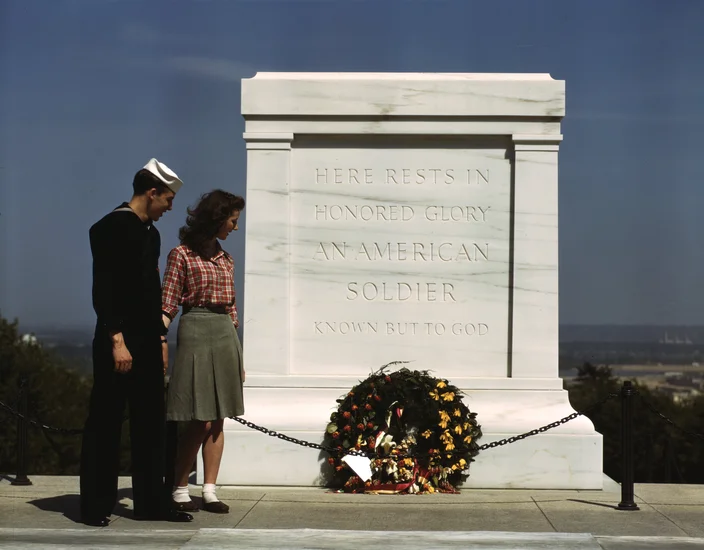
President Warren G. Harding dedicated the Tomb of the Unknowns at Arlington National Cemetery. The ceremony honored unidentified American soldiers who died in World War I.
The dedication created a powerful symbol of national sacrifice and remembrance. The tomb would later be expanded to include unknowns from World War II and the Korean War.
1942 – Turkish Capital Tax Imposed
The Turkish parliament passed the Varlık Vergisi, a capital tax primarily targeting non-Muslim citizens. The legislation aimed to financially ruin minority communities and end their economic influence.
The discriminatory tax devastated Armenian, Greek, and Jewish communities. The policy represented a dark chapter in Turkish treatment of religious minorities during World War II.
1962 – Kuwait Ratifies Constitution
Kuwait’s National Assembly ratified the Constitution of Kuwait, establishing the framework for the nation’s government. The document balanced traditional monarchy with modern parliamentary democracy.
The constitution granted significant powers to the elected parliament. This balance between tradition and modernity would define Kuwait’s political development for decades.
Business and Economic Events on November 11
1980 – Microsoft Partnership Agreement

Space Shuttle Columbia launched from Kennedy Space Center on STS-5, the first operational mission of the Space Shuttle program. The mission carried commercial satellites and demonstrated the shuttle’s capabilities.
The successful launch marked the beginning of routine space operations. Columbia’s mission proved the shuttle could serve both scientific and commercial purposes effectively.
1926 – U.S. Highway System Established
The United States Numbered Highway System was established, creating a standardized network of interstate routes. This system revolutionized American transportation and commerce.
The highway network facilitated long-distance travel and interstate commerce. The system’s implementation accelerated economic development and cultural exchange across the nation.
1934 – Shrine of Remembrance Opens
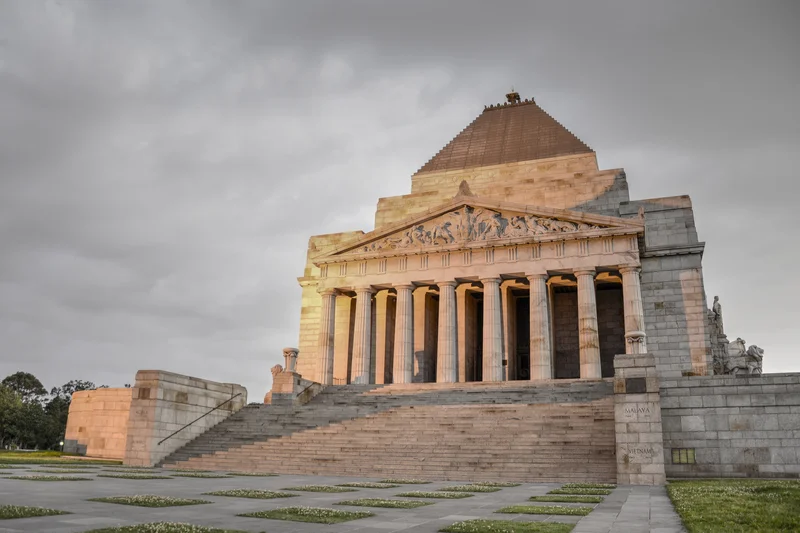
The Shrine of Remembrance opened in Melbourne, Australia, commemorating Victorian service members who died in World War I. The monument became a focal point for national remembrance.
The impressive structure attracted visitors from across Australia and internationally. The shrine’s design incorporated classical elements with modern Australian symbolism.
Transportation and Infrastructure on November 11
1982 – Space Shuttle Columbia Mission

Space Shuttle Columbia launched from Kennedy Space Center on STS-5, the first operational mission of the Space Shuttle program. The mission successfully deployed commercial satellites and demonstrated routine space operations.
The launch marked a new era in space exploration and commercialization. Columbia’s crew completed all mission objectives, proving the shuttle’s viability for regular operations.
1911 – Midwestern Weather Records
Many cities in the Midwestern United States broke both record highs and lows on the same day as a powerful cold front moved through the region. The extreme weather event demonstrated nature’s dramatic power.
The unprecedented temperature swings amazed meteorologists and residents alike. The weather system highlighted the volatile nature of Midwestern climate patterns.
2002 – Laoag Airlines Crash
A Fokker F27 Friendship operating as Laoag International Airlines Flight 585 crashed into Manila Bay shortly after takeoff. The accident killed 19 people and highlighted aviation safety concerns.
The crash prompted investigations into regional airline safety standards. The tragedy led to improved safety protocols for Philippine aviation operations.
Sports and Recreation on November 11
2000 – Kaprun Disaster

One hundred fifty-five skiers and snowboarders died when a cable car caught fire in an alpine tunnel in Kaprun, Austria. The disaster shocked the winter sports community worldwide.
The tragedy led to major improvements in cable car safety systems. The accident prompted international reviews of mountain transportation safety standards.
1960 – South Vietnam Coup Attempt
A military coup against President Ngô Đình Diệm of South Vietnam was crushed by loyal forces. The failed attempt highlighted growing dissatisfaction with Diệm’s authoritarian rule.
The coup’s failure temporarily strengthened Diệm’s position. However, the attempt foreshadowed the successful coup that would remove him three years later.
1977 – Iri Train Station Explosion
A munitions explosion at a train station in Iri, South Korea, killed at least 56 people. The disaster highlighted the dangers of transporting military supplies through civilian areas.
The explosion devastated the local community and prompted safety reforms. The incident led to stricter regulations for military transport operations.
Notable Births on November 11
1922 – Kurt Vonnegut
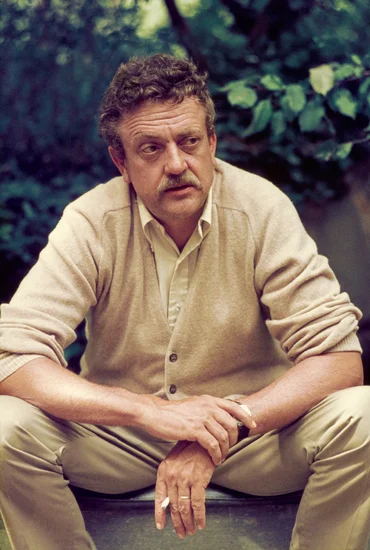
American novelist Kurt Vonnegut was born in Indianapolis, Indiana. His experiences as a prisoner of war during World War II would profoundly influence his literary works.
Vonnegut’s darkly comic novels explored themes of war, mortality, and human nature. His masterpiece “Slaughterhouse-Five” became one of the most important American novels of the 20th century.
1974 – Leonardo DiCaprio

American actor Leonardo DiCaprio was born in Los Angeles, California. His early interest in performing arts led to his breakthrough role in “What’s Eating Gilbert Grape.”
DiCaprio became one of Hollywood’s most acclaimed actors and environmental activists. His performances in films like “Titanic” and “The Revenant” earned him international recognition and an Academy Award.
1962 – Demi Moore

American actress Demi Moore was born in Roswell, New Mexico. Her childhood experiences in various foster homes shaped her determination to succeed in entertainment.
Moore became one of the highest-paid actresses of the 1990s. Her roles in films like “Ghost” and “A Few Good Men” established her as a major Hollywood star.
1994 – Stanley Tucci

American actor Stanley Tucci was born in Peekskill, New York. His Italian-American heritage influenced his passion for both acting and culinary arts.
Tucci’s versatile performances spanned comedy, drama, and character roles. His work in films like “The Devil Wears Prada” and “Julie & Julia” showcased his remarkable range.
1958 – Daniel Ortega
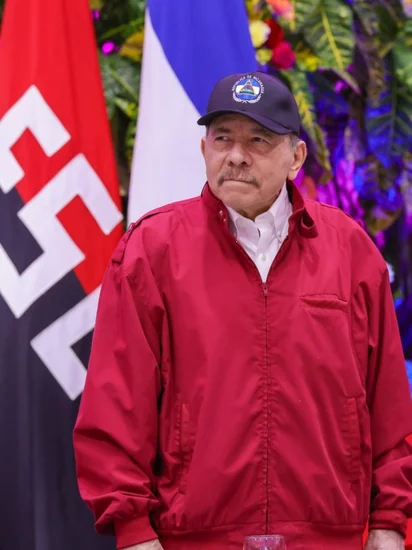
Nicaraguan politician Daniel Ortega was born in La Libertad, Nicaragua. His early involvement in revolutionary politics shaped his lifelong commitment to leftist causes.
Ortega led the Sandinista revolution and later served multiple terms as Nicaragua’s president. His political career spanned decades of Central American political transformation.
Notable Deaths on November 11
1917 – Liliuokalani of Hawaii
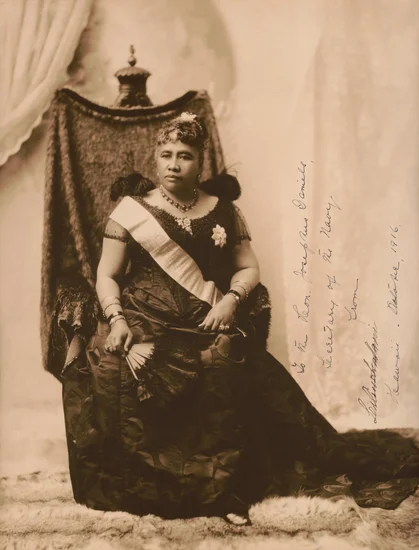
Queen Liliuokalani, the last monarch of Hawaii, died in Honolulu at age 79. Her efforts to restore Hawaiian sovereignty had been thwarted by American business interests.
The queen’s death marked the end of an era in Hawaiian history. Her legacy as a defender of Hawaiian independence continues to inspire sovereignty movements today.
1945 – Jerome Kern
American composer Jerome Kern died in New York City at age 60. His innovative musical theater compositions revolutionized American popular music.
Kern’s songs like “Ol’ Man River” and “The Way You Look Tonight” became standards. His influence on musical theater and popular song composition proved lasting and profound.
2004 – Yasser Arafat

Palestinian leader Yasser Arafat died in Paris at age 75 from unidentified causes. His death ended decades of leadership in the Palestinian independence movement.
Arafat’s legacy remained controversial, viewed as both terrorist and freedom fighter. His Nobel Peace Prize and complex political career embodied the contradictions of Middle Eastern politics.
1973 – Artturi Ilmari Virtanen
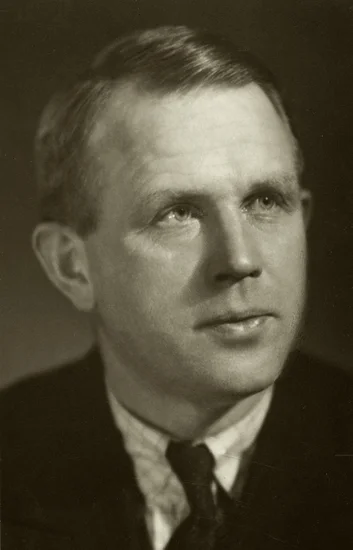
Finnish chemist Artturi Ilmari Virtanen died in Helsinki at age 78. His groundbreaking work in biochemistry earned him the Nobel Prize in Chemistry.
Virtanen’s research on nitrogen-fixing bacteria revolutionized agricultural science. His discoveries helped improve food production and contributed to the Green Revolution.
1980 – Vince Gair
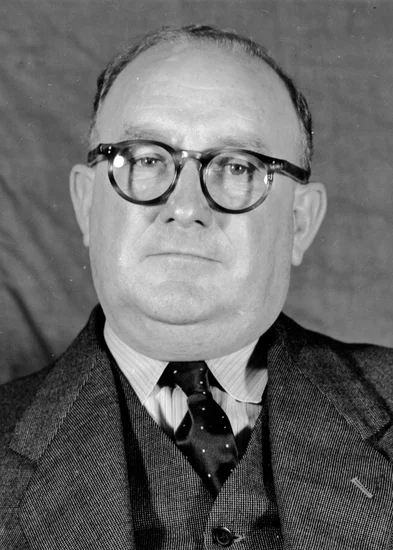
Australian politician Vince Gair died in Brisbane at age 79. His career spanned several decades of Queensland politics and federal government service.
Gair served as Queensland’s Premier and later as a federal senator. His political evolution from Labor to conservative positions reflected changing Australian political alignments.
1976 – Alexander Calder
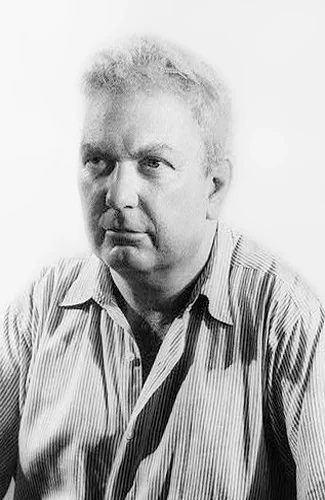
American sculptor Alexander Calder died in New York City at age 78. His innovative mobiles and stabiles transformed modern sculpture and public art.
Calder’s kinetic sculptures brought movement and color to the art world. His large-scale public works continue to delight audiences in cities worldwide.
Holidays and Observances on November 11
Veterans Day (United States)

Veterans Day honors American military veterans from all branches of the armed forces. Originally called Armistice Day, it was rededicated in 1954 to honor all veterans.
The holiday’s timing commemorates the end of World War I at the eleventh hour. Communities across America hold parades, ceremonies, and special events to honor veterans’ service.
Armistice Day (France, Belgium, Serbia)
Armistice Day commemorates the end of World War I with solemn ceremonies and remembrance services. The holiday maintains its original focus on the Great War’s conclusion.
Independence Day (Angola)
Angola celebrates its independence from Portugal achieved in 1975. The holiday marks the end of centuries of colonial rule and the beginning of sovereignty.
The celebration occurs alongside other November 11 observances worldwide. Angola’s independence day represents African liberation movements’ success during the decolonization era.
Singles’ Day (China)

Singles’ Day has become the world’s largest online shopping event, far surpassing Black Friday and Cyber Monday. The holiday originated as a celebration for unmarried individuals.
Chinese consumers spend billions of dollars during the 24-hour shopping festival. The event has transformed from a cultural observance into a major commercial phenomenon.
Remembrance Day (Commonwealth Nations)

Remembrance Day honors Commonwealth military members who died in world wars and other conflicts. The tradition includes wearing red poppies and observing two minutes of silence.
The observance occurs throughout the United Kingdom, Canada, Australia, and other Commonwealth nations. The day maintains its solemn character while honoring military sacrifice across generations.
